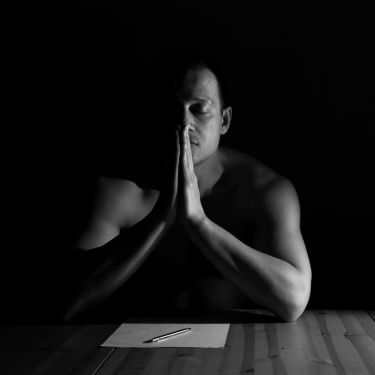In our journey of understanding the world, we are often intrigued by notions that challenge our conventional wisdom. One such concept is remote viewing, a purported psychic ability to perceive places, people, and actions that are not within the range of the senses. T
The credibility of such a phenomenon naturally requires rigorous scrutiny. In order to get meaningful results, we need to validate the information we receive through remote viewing.
Validating information from remote viewing involves comparing the obtained data with independent sources, conducting controlled experiments, and evaluating consistency over time.
Expert analysis and corroboration from multiple viewers can help assess the accuracy and reliability of the information. However, the scientific consensus remains sceptical due to the lack of robust empirical evidence.
In this article, I will delve into the mechanisms to validate information obtained from remote viewing, aiming to separate the chaff from the grain and understand the true nature of this fascinating concept.

How To Gain Information Through Remote Viewing?
Gaining information through remote viewing involves a process that requires practice and patience. Often, it starts with the viewer entering a relaxed, meditative state, achieved through techniques such as deep breathing or progressive muscle relaxation. Once the viewer has attained this state, they mentally focus on the target, which could be a person, location, or event. The information often comes in the form of mental images, feelings, or thoughts.
For beginners, it’s helpful to start with simple targets, such as an object in another room, and gradually move to more complex ones. Documentation of the viewing process can assist in fine-tuning abilities over time, noting down all impressions during the session, however vague or disjointed they may seem.
Remember, remote viewing is an ability that is believed to improve with practice, and consistency is key. Regular sessions, self-assessment, and constructive feedback can help improve your remote viewing experiences. However, the evidence for the effectiveness of these techniques is highly debated, and individuals should approach them with an open mind and healthy scepticism.
How To Validate Information From Remote Viewing?
To validate information obtained through remote viewing, the first step is to record the data accurately. This involves documenting the remote viewing session in detail, noting down observations, feelings, impressions, and any other relevant information.
Next, compare the recorded data with the actual physical location or event. This process often requires independent sources to confirm the information or direct verification if possible.
Controlled experiments are a crucial part of validation. These could involve blind tests, where the viewer has no prior knowledge of the target, or double-blind tests, where both the viewer and the person conducting the experiment are unaware of the target. This eliminates the possibility of subconscious cues or biases influencing the results.
Consistency over time is another important factor. Similar results from multiple sessions can indicate a higher probability of accuracy.
Finally, expert analysis can provide a critical assessment of the data. Experts in fields relevant to the target subject can evaluate the accuracy of the information obtained. Multiple viewers corroborating the same data also increases its reliability.
However, it’s important to understand that despite these protocols, the realm of remote viewing is complex and subjective, and results should be interpreted with a healthy dose of scepticism.
Have Scientific Experiments Been Conducted To Validate Remote Viewing?
Indeed, over the years, a number of scientific experiments have been conducted to test and validate the phenomenon of remote viewing. One of the most well-known projects was the Stargate Project, a program funded by the U.S. government in the 1970s and 80s. The project aimed to investigate the potential for psychic phenomena in military and domestic intelligence applications.
In the realm of academia, the work of physicist Russell Targ and electronics engineer Harold Puthoff at Stanford Research Institute in the 1970s stands out. They conducted a series of experiments to test the validity of remote viewing, claiming some success. Their work, however, has received mixed reviews from the scientific community, with critics citing methodological flaws and lack of reproducibility.
In more recent years, the scientific examination of remote viewing has continued, albeit less prominently. Remote viewing experiments often involve protocols such as double-blind setups to eliminate potential bias. Despite these efforts, the results have been inconclusive, and remote viewing remains a controversial topic within the scientific community. It’s, therefore, paramount to approach any claims of successful remote viewing with caution, critical thinking, and an understanding of the scientific method.
Final Mindful Thoughts
Remote viewing remains a captivating yet contentious subject. Although the process and potential mechanisms have been discussed in depth, credible evidence supporting its validity is scarce.
The validation of information obtained via remote viewing involves recording detailed data, comparing that data to actual events or locations, conducting controlled experiments, ensuring consistency over time, and inviting expert analysis. Nonetheless, these methods are not foolproof, and the results remain controversial, often open to interpretation and scepticism.
Academic and governmental endeavours, such as the Stargate Project and the work of Russell Targ and Harold Puthoff, have sought to explore the possibility of remote viewing, with mixed and largely inconclusive results. Methodological flaws, lack of reproducibility, and an absence of consistent, empirical evidence have led the scientific community at large to remain sceptical.
As we delve deeper into understanding the complexities of human consciousness and cognitive abilities, it is paramount that we approach topics like remote viewing with an open yet critical mind.
The allure of unveiling the unseen should be balanced with the rigour of scientific enquiry and the scepticism that comes with it.
Whether remote viewing proves to be a genuine human ability or a fascinating psychological phenomenon, it undoubtedly continues to intrigue and inspire further exploration.
As such, those interested in the field should continue to seek answers, but always with a rigorous commitment to objectivity and critical thinking.
